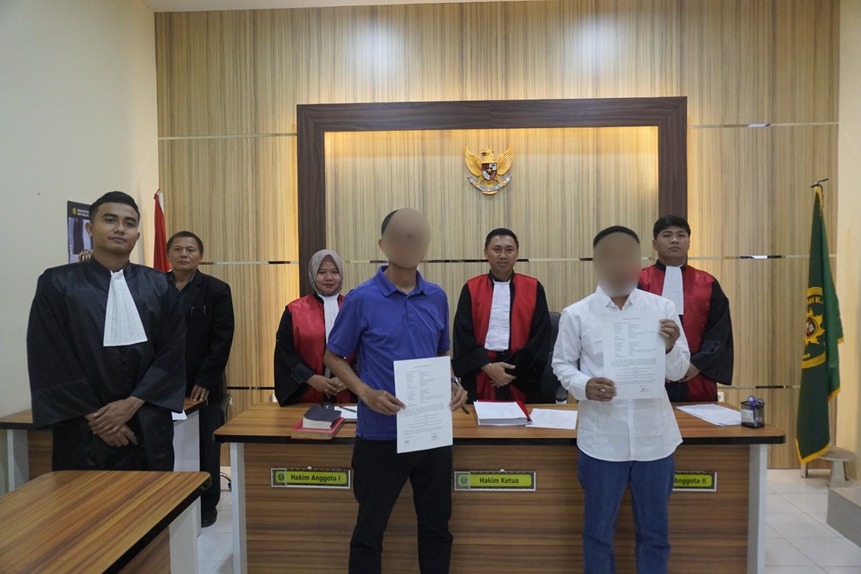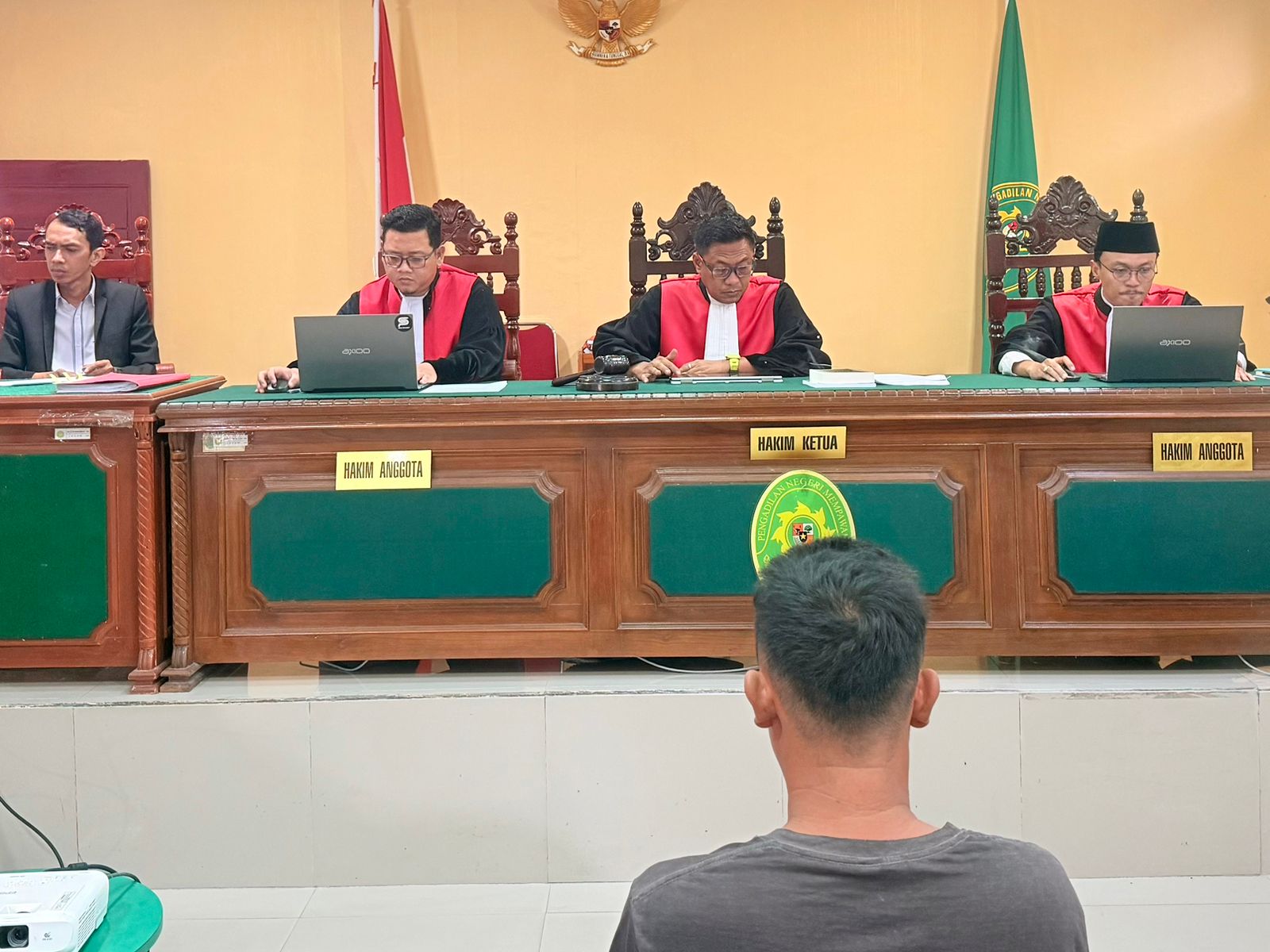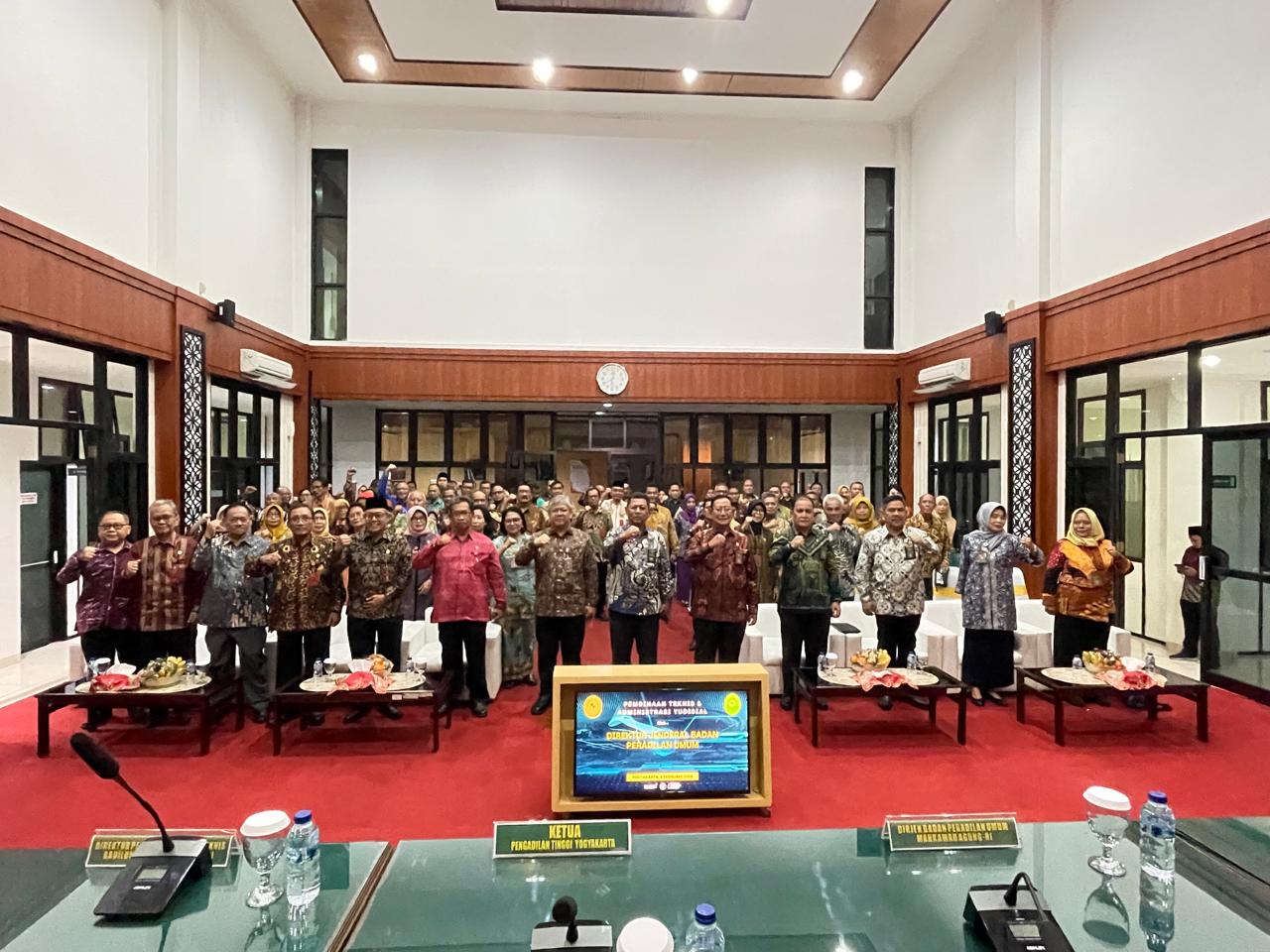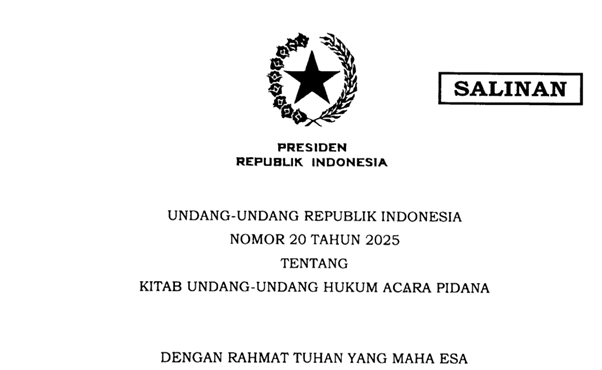Introduction
On January 2026, the Law Number 1 of 2023 on Criminal Code (Undang-Undang No. 1 Tahun 2023 tentang Kitab Undang-Undang Hukum Pidana)(hereafter as “KUHP Nasional”) will be fully prevail. Some key elements will alter the culture or the way Indonesian people implement their criminal law. This situation may lead to a “cultural shock”, which often refers to the situation where strain and anxiety result from contact with a new situation and the feeling of confusion resulting from loss of accustomed cultural cues and social rules.[1] In other research, cultural shock happens when a person cannot understand a new situation or behaviour. The result is the person may become confused or even get stressed. In the final stage, the person may fail to communicate what to say and what to do or act around the new situation.[2]
The impacts of cultural shock are varied, from only resulting stress to a destructive effect. Based on Anugerah’s research, one of the cultural shock symptoms is the rejection of the new situation or rules.[3] This rejection may cause the failure of the new regulation. For instance, the cultural shock may be a significant obstacle for the Indonesia government to apply the KUHP Nasional in this remaining transition period (more or less 8 months). Therefore, in this article, the Writer will discuss on two main issues: 1) What are the key changes on KUHP Nasional?; and 2) How does cultural shock affect the implementation of KUHP Nasional?
Baca Juga: Evaluating The Effectiveness Of Criminal Law Responses To Bullying
The Key Changes
As the KUHP Nasional has enacted, several new rules have been introduced. These new rules are claimed may change the implementation of criminal law in Indonesia. Among these new rules, the Writer will highlight the most anticipated, which based on the Writer’s opinion, will be the game changer:
1. Living Law Issues
Article 2 (1) KUHP Nasional raises another issue of living law implementation. In the future, there is a possibility that a person will be sentenced based on living law or customary law that live in certain area. This provision will conflict with the Legality Principle, which demands that only regulated acts may be sentenced. Although Article 2 (3) KUHP Nasional stated the implementation of living law will be further regulated under government regulation. However, the uncertainty on how these rules will be implemented remains unknown. There is a possibility that unwritten living law will be used by the law enforcer.
We shall travel back to the Roman Empire era to learn the main purpose of the Legality Principle. The principle was born as a critic toward the tyranny that restrained the people democratie in the past. Before the legality principle, criminal law utilized the principle of crimine extra ordinaria, which allows the unwritten criminal act to be used by the law enforcer. The excess, many people have been sentenced by the king over an uncertain regulation in that era[4]. Therefore, as an antithesis, the Legality Principle was introduced.
2. Decriminalization and Revocation
Article 3(4) KUHP Nasional introduces a new methodology on how a criminal sentencing shall be banished by the law. In terms of the court decision has had a permanent legal force (berkekuatan hukum tetap or BHT), however the criminal act that occurred is no longer a crime based on the new laws (decriminalization)[5], hence the criminal sentencing should be stopped.
Another issue is related to revocation. Many criminal acts have been repealed and declared invalid by Article 622 KUHP Nasional. At least there are more than 28 regulations that are revoked without any explanation and proper public socialization. At a glance, there is some confusion between decriminalization and revocation. The revocation does not always end with decriminalisation. Example Article 111 Law No. 35 of 2009 is revoked but re-regulated under article 609 KUHP Nasional. People will be confused about which one is only revoked then re-regulated and which one is the decriminalisation. This situation is even worse in the absence of proper public socialization from the government.
3. The New Sentencing Goal
In the early stages of Indonesia's independence, the law emerged as a tool of power and politics. The government often uses force to maintain law and order, due to the old criminal code promotes the retributive theory. This theory suggests that law enforcement should use force in responding to criminals (such as imprisonment). This approach is also confirmed in Law No. 8 of 1981 on the Code of Criminal Procedure.[6] In fact, over 98% of criminal acts in the old criminal code only used jail as the sole sentencing option.[7]
Almost every criminal act ends with imprisonment in Indonesia. Eventually, law experts come up with the idea of restorative justice as the antithesis of the retributive theory.[8] As we may refer to Article 51(c) KUHP Nasional, the new regulation does not only include the retributive theory but also promotes the restoration over the crime impact. Article 71 (1) KUHP Nasional demands that imprisonment should not be imposed if the judge finds several conditions such as the suspect is a minor, over 75 years old or another 15 conditions.
To achieve the restoration, Article 65 KUHP Nasional introduced several new sentencing methods, among others provision (probation) and community service. Article 54 KUHP Nasional also introduced the concept of judicial pardon, where judge may not impose any sanction although the crime act is proven. However, at least for 400 years since the colonial era, Indonesian already accustomed with idiom “evil (criminals) should be jailed”. The negative sentiment over free or even low sentencing is outrageous in Indonesia. Since “no viral, no justice” is being hyped, every court decision that does not suit the people will be poorly judged.
Culture Shock: The Aftermath
Cultural shock often refers to the context of cultural migration, when a person moves to another place with a different culture from his origin. However, regarding regulation shifting, this term is also relevant in the writer's opinion. We may see that one of culture shock cause is the implementation of new rules.[3] When new rules are applied, people may lose cues. Losing cues also means losing signs, daily life routine patterns, or even an accustomed way of life (driving, walking, communing, etc.). The impact of culture shock may cause someone to fear living in the new situation, leading him to refuse the new situation, and when they fail to adapt the negative stigma over the new situation will rise (stereotype).[9]
Hence, there are adversarial effects of cultural shock that may be occurred when the KUHP Nasional is implemented:
1. Fear of Failure
Fear of failure indicates a lousy involvement in several things, such as actions taken or choice of tasks. This condition indirectly affects decision making, such as avoiding the cause of fear or avoiding the implementation of certain conditions.[10] This fear may be caused by the lack of understanding over KUHP Nasional. As mentioned, several fundamental changes in KUHP Nasional alter the old principle in the previous rule. Such as the living law regulation that may alter the legality principle. If this view is unclear, fear will surround the law enforcement perception. Fear of failure may also cause law enforcement to avoid the new sentencing method in KUHP Nasional. Thus, imprisonment will remain as the main option of our sentencing method, or they will hardly try to avoid the new rules, only implementing the one that is still in line with the old way.
2. Negative Sentiment and Rejection
The new goal of KUHP Nasional to restore the criminal impact may be achieved by the new sentencing method. Not only by imprisonment, but the judge also may impose community service and supervision (probation). But, law enforcement is facing negative sentiment from the people. In Indonesia, whatever the case, when judges impose a low sentence or declare the suspect innocent, the people will respond with negative sentiment. As note, negative sentiment may impact decision making, as common sense humans will avoid negative sentiment. Thus, they will avoid or reject the action or rules that may bring the negative sentiment, which is the new regulation or the new sentencing method. So, we will face an era when regulation only remains on paper.
3. Losing of Public Trust
In the final stages, when negative stigma and rejection surround the KUHP Nasional, law enforcement will lose the public trust. As we know, law enforcement is a process that ensures people will follow the rules so order may be achieved. When people lose their trust in law enforcement, it is possible that it could damage the legal system that has maintained order in the society.[11]
Closing
For almost 400 years, the Wetboek Van Strafrecht has been implemented in Indonesia. The birth of KUHP Nasional for indonesia is similar to a conditioan when a long married couple that just been blessed with a biological child. However, the key changes contained in KUHP Nasional required a long adaptation process. Cultural shock will eventually occur and become a significant obstacle in the implementation. The role of the government is very central in helping both law enforcers and the community to adapt. Change is inevitable in life, but those who succeed in adapting are those who always struggle to learn and fight.
Bagus Sujatmiko
(Larantuka District Court Judge)
References:
[1] M. Winkelman, “Cultural Shock and Adaptation,” Journal of Counseling & Development, vol. 73, no. 2, pp. 121–126, 1994, doi: 10.1002/j.1556-6676.1994.tb01723.x.
[2] D. A. Rafika, “Culture Shock Experienced by Foreign Workers,” Archives of Business Research, vol. 6, no. 4, Apr. 2018, doi: 10.14738/abr.64.4331.
[3] A. Salon Bidang, E. Erawan, and K. A. Sary, “PROSES ADAPTASI MAHASISWA PERANTAUAN DALAM MENGHADAPI GEGAR BUDAYA (Kasus Adaptasi Mahasiswa Perantauan di Universitas Mulawarman Samarinda),” Onilne, 2018.
[4] “nurdhin,+(6)+Asas+Legalitas-Tahir”.
[5] D. Handoko Sekolah Tinggi Ilmu Hukum Persada Bunda, “KLASIFIKASI DEKRIMINALISASI DALAM PENEGAKAN HUKUM DI INDONESIA (Classification of Decriminalization in Law Enforcement in Indonesia),” Desember, vol. 10, no. 2, pp. 145–160, 2019, doi: 10.30641/ham.2019.10.143-160.
[6] Fachrizal Afandi, “Mendesak, Reformasi Hukum Acara Penyidikan,” Kompas.Id.
[7] Widodo, Sistem Pemidanaan Dalam Cyber Crime, 1st ed., vol. 1. Yogyakarta: Laksbang Mediatama, 2009.
[8] B. Sujatmiko and M. Istiqomah, “MENDORONG PENERAPAN PIDANA BERSYARAT PASCA KEPUTUSAN DIREKTUR JENDRAL BADAN PERADILAN UMUM NOMOR 1691/DJU/SK/PS.00/12/2020 SEBAGAI ALTERNATIF KEADILAN RESTORATIF,” Jurnal Bina Mulia Hukum, vol. 7, no. 1, pp. 46–62, Sep. 2022, doi: 10.23920/jbmh.v7i1.787.
[9] T. Intan, “GEGAR BUDAYA DAN PERGULATAN IDENTITAS DALAM NOVEL UNE ANNÉE CHEZ LES FRANÇAIS KARYA FOUAD LAROUI,” 2019.
[10] K. Akan et al., “Prosiding KONFERENSI ILMIAH MAHASISWA UNISSULA (KIMU) 2 The Relationship Between Perception Of Parental Expectations and Self-Efficacy With Fear Of Failure In Students Who Finishing Final Thesis,” 2019.
Baca Juga: Integrasi Reward & Punishment dengan Strategi Kindness: Jalan Etis Menuju Peradilan Agung
[11] Aristo Pangaribuan, “Sistem Hukum Tanpa Kepercayaan,” https://www.hukumonline.com/berita/a/sistem-hukum-tanpa-kepercayaan-lt4bf4f6fef3d1f/ .
Untuk Mendapatkan Berita Terbaru Dandapala Follow Channel WhatsApp : Info Badilum MA RI
















